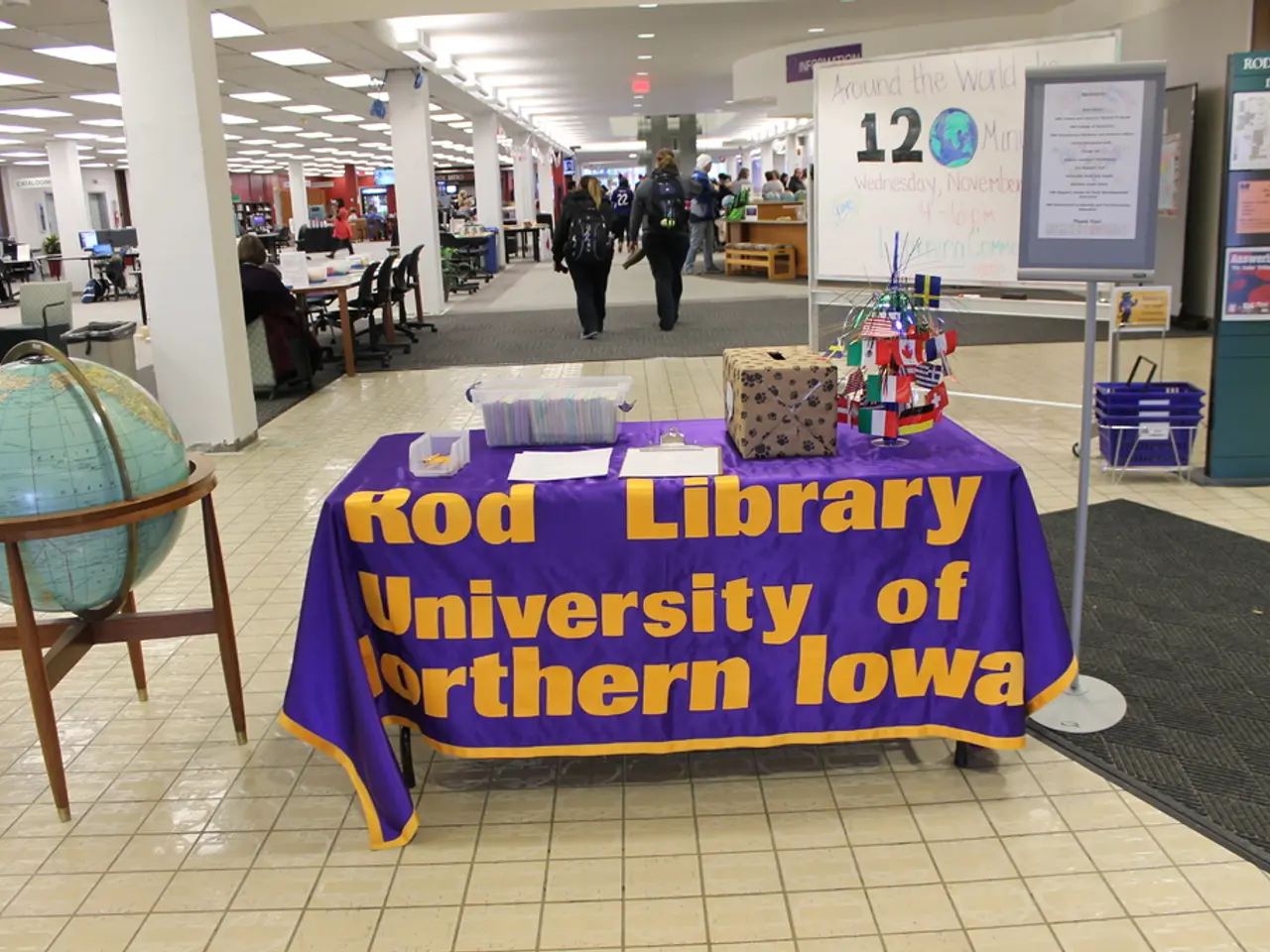Unveiling the Globe's Innovation Guild - WCO
In the ever-evolving world we live in, the need for creativity, innovation, and solidarity has never been more crucial. This is where the World Creativity Organization (WCO) steps in, a global entity dedicated to harnessing the power of creativity as a driving force for positive change.
The WCO's roots can be traced back to 2014, when Lucas Foster initiated World Creativity Day in São Paulo. Over the years, this day evolved into a global movement, culminating in the establishment of the World Creativity Organization in 2024.
The WCO's influence has been far-reaching, with the number of participating cities growing significantly. What started as 50 cities in 2019, expanded to 128 in 2021, including cities like Los Angeles, Barcelona, Tokyo, Dubai, and Maputo.
One of the WCO's key initiatives is World Creativity Day, now an annual festival that aims to inspire people to shape projects and businesses, promoting creativity and innovation. The 10th anniversary of World Creativity Day in 2024 was celebrated in 55 cities across Brazil, offering free entry to nearly 4,000 cultural and creative activities.
The WCO also endorses the SP+C Manifesto, a movement for a more creative city, which was first endorsed by Edna dos Santos-Duisenberg in 2012 and became the embryo for what would become World Creativity Day.
Recognizing the challenges posed by advancing artificial intelligence and escalating climate disasters, the WCO places a strong emphasis on human creativity and innovation. The Brazil Creative Award, a biannual award covering fifteen fields related to the creative economy, is one such initiative.
The WCO's efforts extend beyond the realm of awards and festivals. The Creative Leadership Program, conducted by the WCO, identifies potential festival leaders, including 70 students in 2024.
The WCO's impact extends beyond its immediate initiatives. In 2017, the United Nations designated April 21 as World Creativity and Innovation Day (WCID), recognising the importance of creativity and innovation in driving sustainable development. During the pandemic in 2021, the UN Office for Project Services (UNOPS) sought support from the World Creativity Day's collaborative structure to identify startups and innovations for quick adoption by hospitals, schools, and municipal departments.
The WCO's mission aligns with the São Paulo Consensus, a mandate received by the UN in 2004 to include the creative economy in the international economic and development agenda. The UN Creative Economy Report 2008, the first comprehensive study presenting the UN perspective on the creative economy, further supports this mandate.
In 2018, 14 Brazilian cities participated in World Creativity Day, which was established as a national festival due to live broadcasts by the country's main news channel. The Brazilian Ministry of Culture even proposed the creation of an International Center on Creative Economy (ICCE) in Brazil, supported by several governments including the United Kingdom.
In conclusion, the World Creativity Organization is a global force championing creativity, innovation, and sustainability. Through its various initiatives, it encourages cross-cultural collaboration and empowers individuals to shape a brighter, more creative future.
- The World Creativity Organization (WCO) emphasizes the importance of human creativity and innovation in addressing the challenges posed by advancing technology and escalating climate disasters.
- The WCO's key initiatives include annual festivals, such as World Creativity Day, aiming to inspire people to shape projects and businesses that promote creativity and innovation.
- The WCO places a strong emphasis on education-and-self-development, career-development, and skills-training, as evidenced by its Creative Leadership Program that identifies potential festival leaders.
- The WCO, in partnership with the UN, has contributed to the recognition of World Creativity and Innovation Day, which was designated in 2017 to highlight the importance of creativity and innovation in driving sustainable development.
- The WCO's mission aligns with the São Paulo Consensus, a mandate received by the UN in 2004 to include the creative economy in the international economic and development agenda.
- The organization's efforts have extended to policy-making, as seen in the proposal for the creation of an International Center on Creative Economy (ICCE) in Brazil, supported by several governments, including the United Kingdom.
- In 2024, the 10th anniversary of World Creativity Day was celebrated in 55 cities across Brazil, offering free entry to nearly 4,000 cultural and creative activities.
- The WCO's influence is global, with the number of participating cities growing significantly, including cities like Los Angeles, Barcelona, Tokyo, Dubai, and Maputo.
- The Brazil Creative Award, a biannual award covering fifteen fields related to the creative economy, is another initiative by the WCO that seeks to recognize and support creative talent and skills.




